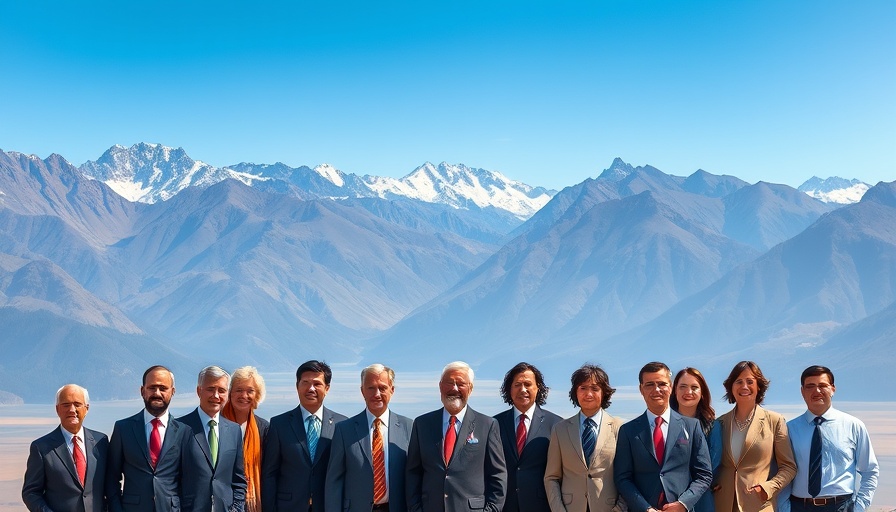
AI Adoption Takes Center Stage at G7 Summit
At the recent G7 summit held in Alberta, leaders from major world economies collectively agreed to adopt a "human-centric approach" towards artificial intelligence. This initiative prioritizes ethical guidelines and responsible implementation of AI technologies, highlighting the need for cooperation to ensure that AI benefits society as a whole. While AI remains a hot topic globally, this agreement signals a step towards internationally recognized standards that can help regulate AI development amidst fast-evolving technology.
Critical Minerals: A New Economic Frontier
Another significant outcome of the summit was the commitment to develop standards for critical minerals, essential components for batteries, renewable energy, and advanced technologies. A wider coalition, including nations like Australia, India, and South Korea, agreed to collaborate on investment projects that are responsible and environmentally sustainable. This partnership comes as governments face increased pressure to secure reliable supplies of critical minerals while also addressing the environmental impact of their extraction and use.
Migrant Smuggling and Transnational Repression
The summit also addressed serious global issues such as migrant smuggling and transnational repression. Leaders discussed strategies to enhance cooperation among nations to prevent human trafficking and provide support for affected individuals. Furthermore, there was an emphasis on the importance of upholding democratic values and securing human rights, which are frequently under threat from oppressive regimes.
A Missed Opportunity on Ukraine
Despite the significant agreements made on AI and critical minerals, the G7 summit concluded without a unified stance on the war in Ukraine. The absence of a clear strategy to hold Russia accountable for its actions indicates a crucial gap in addressing ongoing global conflicts. While the summit called for de-escalation in the Middle East regarding the violence between Israel and Iran, the Ukraine situation remains fraught with discord among G7 members.
This lack of consensus may reflect the complexities each nation faces at home, balancing domestic interests with international concerns. As global allies, the G7 must grapple not only with economic and environmental issues but also chart a path toward collaborative solutions for geopolitical tensions.
The Future of G7 Unity
As we reflect on these developments, it's clear that G7 leaders have the opportunity to forge stronger alliances and lead on pressing global challenges. The technologies and resources discussed at this summit offer significant potential for economic growth and international cooperation, but they also underscore the pressing need for the G7 to present a united front on issues that threaten global stability.
Understanding the Impact of G7 Decisions
For those concerned with global issues, the discussions initiated in Alberta serve as a reminder of the interconnectedness of technology, resources, and human rights. By adopting a human-centric approach to AI and committing to sustainability in mineral extraction, G7 nations can lead by example. However, without addressing conflicts like the war in Ukraine with the urgency they require, the effectiveness of their agreements may be limited.
In navigating these complex topics, it's crucial for citizens to engage with their governments and advocate for stronger, more cohesive international policies. The future depends on our ability to confront these challenges collectively and responsibly.
 Add Row
Add Row  Add
Add 




 Add Row
Add Row  Add
Add 

Write A Comment